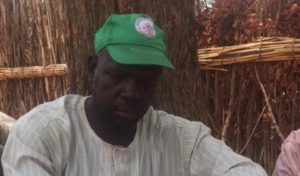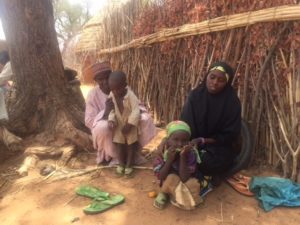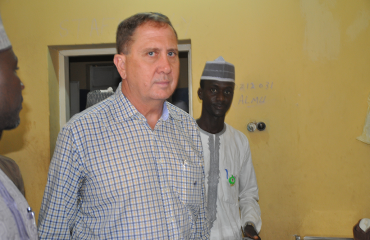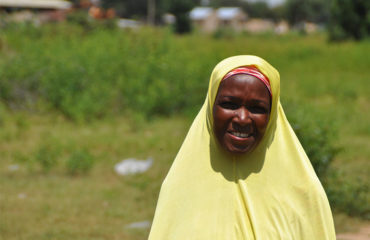
Danlami Adamu: ETS driver/ ETS Focal Person in Roni LGA.
Sa’adatu knew something wasn’t right when her contractions started. By the time she and her husband arrived on a motorcycle to the nearest PHC, she wasn’t just vomiting but bleeding profusely. The PHC referred her to a larger facility 35 miles away.
“I was confused,” says Sa’adatu’s husband Mallam Haruna, a Fulani farmer living in a village in Kunchi LGA, Kano state where the family rears cows, goats, and chickens. “She was bleeding so much, as if she was going to faint and die.” His fear wasn’t unfounded: maternal mortality in Jigawa is 1,100 deaths/100,000 live births (source: SMoH). Part of the contributing factors are the delays in medical attention due to barriers such as distance to a facility.
Blood, sweat and gears
Danlami Adamu is an experienced volunteer ETS driver. He trained with MNCH2 in 2016 and has transported around 50 women since. “One day, I was driving through Falle, when I saw a helpless Fulani man and his wife by the roadside looking desperately for a good Samaritan to take the woman who was in labour to Kazaure General Hospital.” Telling Haruna to stay strong, he drove the couple to the hospital.

Saadatu Haruna, Mal. Haruna and children at their home in Falle Village.
Sa’adatu was in a critical condition and needed a blood transfusion. Haruna’s blood group wasn’t compatible, but it turned out that Danlami was a match. Before leaving the hospital, Danlami donated blood.
Sa’adatu recovered, but the couple lost their baby. Back in the community, where she trades food for a living, she now sees the value of ANC. “And we may need to take up family planning, given we already have five children.”
“The husband asked for my name and fee,” Danlami tells. “But I do not collect money – I’m a volunteer and this is my contribution.”




